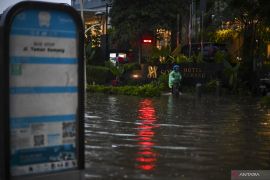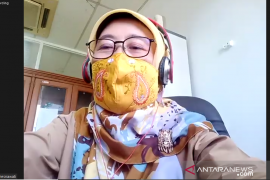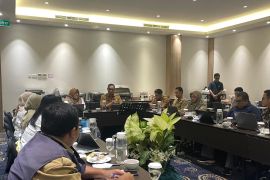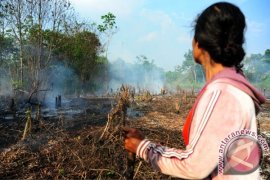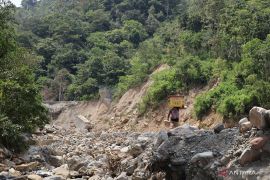The target of our adaptation is to reduce risk and vulnerability and increase adaptive capacity and resilience in all sectors and development areas.Jakarta (ANTARA) - Indonesia has joined the Adaptation Action Coalition (AAC) in a bid to support and strengthen capacity and capability to improve climate resilience on all scales and levels to achieve global adaptation goals. In a written statement released on Wednesday, Deputy Environment and Forestry Minister Aule Dohong said to achieve global adaptation goals, Indonesia hopes to cooperate with global communities to strengthen capacity and capability to increase climate resilience.
Climate change is a major challenge to the economy, life, and livelihood of the Indonesian people and its impact on food production and distribution, water, and energy as well as environmental health has been evident, he observed.
Indonesia has set an ambitious adaptation target, both in the revised document of Nationally Determined Contribution (NDC) and Long–Term Strategy for Carbon and Climate Resilience 2050, he pointed out.
During the online launch of the Adaptation Action Coalition (AAC) on Water Workstream on Tuesday (May 4, 2021), Aule Dohong said Indonesia needs climate crisis adaptation and mitigation efforts — two inseparable steps, each of which cannot be seen as an alternative because both of them have complementary roles. The greater the mitigation efforts, the fewer the adapted impact and the smaller the risk to manage, he remarked.
“The target of our adaptation is to reduce risk and vulnerability and increase adaptive capacity and resilience in all sectors and development areas,” he said.
According to Dohong, water resources are one of the focus areas for Indonesia as it works to develop adaptive capacity and resilience to natural disasters and climate change. The disappearance of water resources due to the disruption of the water balance sheet reached 0.33 to 0.43 percent of the national gross domestic product (GDP), he noted.
The AAC was launched by the United Kingdom and Egypt at the Climate Adaptation Summit in January, 2021. It was developed in partnership with Bangladesh, Malawi, the Netherlands, Saint Lucia, and the United Nations.
Through one of the main NDC programs, integrated river basin area management, Indonesia has managed river basin areas under a climate resilience scheme; first, through improving river basin area management planning that takes into account vulnerability, risk, and climate impact; second, developing policy and instrument to assess river basin area resilience; and third, increasing cross-sectoral and territorial synergy through integrated upstream and downstream approaches in rehabilitating and restoring forests, he noted.
The other efforts include integrating river basin area management to spatial planning, improving residential areas, managing water resources, and encouraging the development of climate change resistant infrastructures, he added.
This reflects the importance of synergy among ministries and institutions in addressing cross-sectoral problems, including the management of the people’s knowledge and participation in local climate action, he said. (INE)
Related news: PEN, vaccination programs, incentives key for sustaining recovery
Related news: Economic contraction of 0.74 percent recorded in Q1 2021: BPS
EDITED BY INE
Translator: Virna P Setyorini/Suharto
Editor: Fardah Assegaf
Copyright © ANTARA 2021

